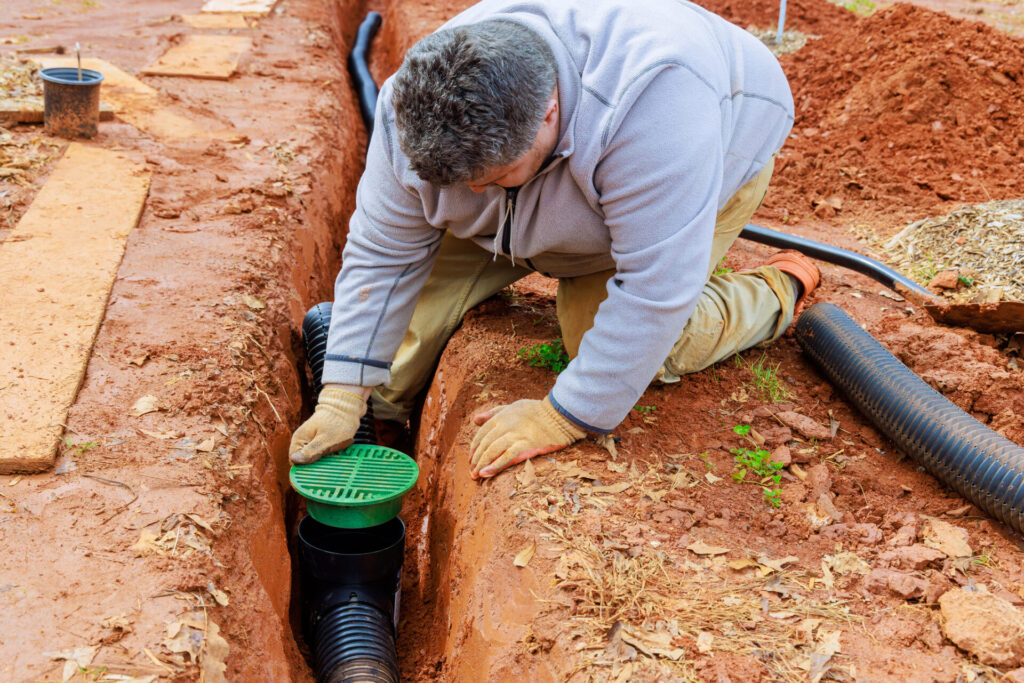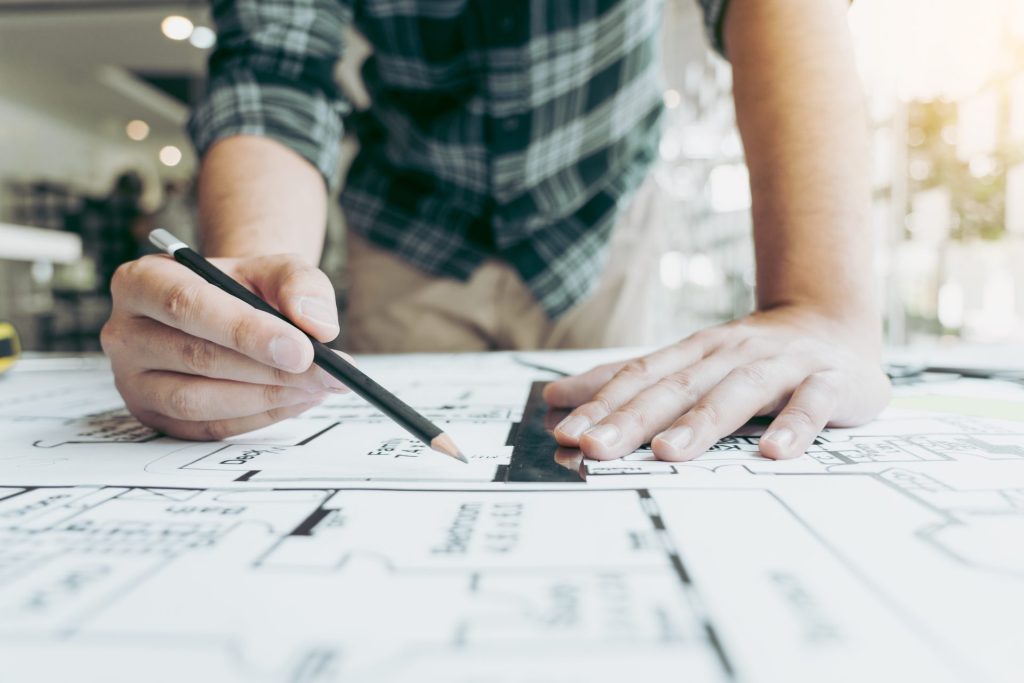What is Waterproofing?
According to homebuilders, waterproofing is the process of lining various aspects of a home with a waterproof membrane that prevents water from entering the housing structure. There are many benefits to waterproofing, such as reducing humidity and moisture levels inside the building, which prevents possible damage.
This process is different from damp-proofing a structure, although the terms are often used interchangeably. Damp-proofing only protects against condensation, whereas waterproofing will protect a home from water and moisture entering a building.
What are the Signs of Water Damage?
Signs of water damage can indicate poor waterproofing methods and may be presented in the following ways:
- Odor: The smell that accompanies water damage can be easily recognized and should not be ignored.
- Dampness: Feeling cold or noticing damp clothing and furniture can indicate a water issue.
- Mold and mildew: Mold and mildew can be found anywhere and can present serious health problems if not addressed.
What are the Types of Waterproofing?
Several types of waterproofing should be considered for any housing structure. The three main processes will be discussed in further detail.
Interior Waterproofing
The interior methods are the easiest and most affordable route to protect against water damage. Interior waterproofing involves sealing every potential entry for water and moisture to accumulate, including doors, windows, floors, and wall cracks.
Interior waterproofing employs the use of particular sealants that fill any crack where moisture could enter. These sealants have proven to be effective and are typically accompanied by extended warranties to support this claim. Another type of sealant will coat basement walls and floors to create an additional barrier.
Exterior Waterproofing
Water issues found in basements usually begin outside of the structure, which makes exterior waterproofing the most effective way to prevent water seepage and moisture buildup.
Exterior methods require excavating the soil surrounding the home’s foundation, a highly laborious task that requires the use of heavy, specialized tools and machines. A waterproof sealant made from a polymer base is then applied to the exposed exterior.
Any exterior water prevention methods that are completed during the construction process should protect the home for a lifetime.
Drainage Systems
Issues with a home’s drainage system are a leading cause of moisture buildup found in a basement. To combat these issues effectively, the waterproofing process should include directing rainwater and groundwater away from the home’s drainage.
Accumulated rain should slope away from the structure’s foundation, and gutters and other drainage systems should be designed in the same fashion.
Interior drainage systems may also be an essential part of waterproofing to keep a dwelling dry, depending on several key factors. A pump may be necessary to drain water from a home.
What are the Benefits of Waterproofing a Home?
While there are many benefits to preventing water and moisture from entering a home, one of the main benefits is protecting the home’s structural integrity. A small crack in the foundation is all that is needed to wreak significant and expensive havoc on the house.
Waterproofing a home will also preserve the electrical system within the structure. Spreading water damage that contacts internal wiring can pose a risk of electrical fires, electrocution, short circuits, and complete power loss. Electrical damage is a hazard to a home’s structural integrity and the physical safety of the building’s occupants.
Another benefit of waterproofing is safeguarding against mold and mildew. Even a small leak can cause mold and mildew to emerge, and these leaks often go undetected for years. While posing a possible structural risk, mold and mildew can produce significant health consequences, such as severe respiratory issues and skin conditions, joint pain, and unexplained fatigue.
Black mold is an especially invasive type of mold that can spread throughout a structure’s walls, ceilings, and carpets. It is difficult and expensive to remove but can be avoided with proper waterproofing and routine checks to catch mold in its early stages.
Proper waterproofing methods can also avoid rust. Homes that use metal structures or steel beams are susceptible to rust accumulation, which may result in the metal losing its strength and shape. Homes with steel and metal in the ceiling that do not have the proper shingles and underlays will also be susceptible to rust damage.
Effective waterproofing measures will also increase a home’s value. As stated, water damage can be a costly expense that puts a family in danger. Waterproofing a dwelling will protect against these damages and increase the home’s value. Prospective homebuyers are comforted in knowing that an investment has been made to protect the house and will be willing to pay more for the peace of mind that waterproofing will provide.
When is the Right Time to Waterproof a Home?
As stated, the best time to waterproof a structure is during construction. Waterproofing during this process will offer the most extensive and effective protection against water damage and water entry. Extensive waterproofing done after the construction of a home will be costly and dependent on a variety of factors, including sufficient space needed to perform the work.
There are less extensive steps that can be taken to help mitigate the risk of water damage to an existing structure when complete waterproofing is not an option, such as:
- Plugging holes and cracks
- Resealing windows, doors, and pipes
- Applying a waterproof coating
- Installing a sump pump
- Checking for exterior drainage issues
Should You Hire a Contractor?
Proper waterproofing methods are the best way to protect your home and your family from water-related difficulties. Hauser Contractors can work with you to incorporate waterproofing provisions for your home build, or we can customize a plan that is best suited for your existing structure. Call Hauser Contractors today at 610-510-6020 or fill out a contact form to start a free estimate.


 CALL US NOW
CALL US NOW EMAIL US NOW
EMAIL US NOW










